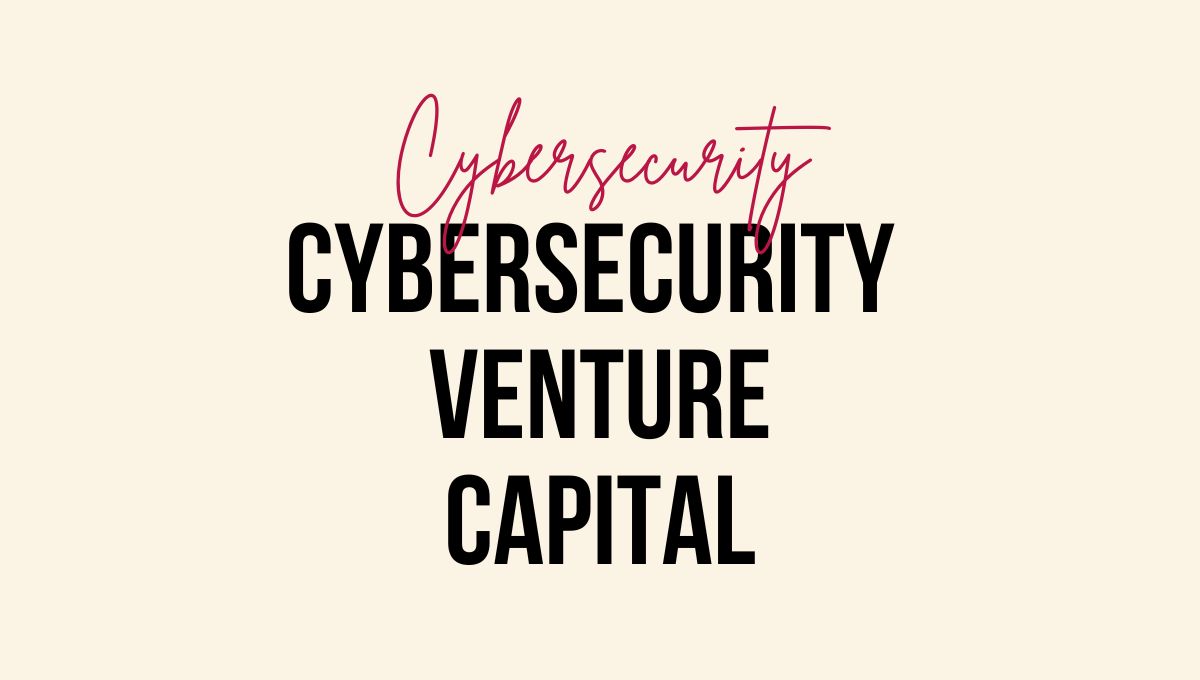Cybersecurity
Cyber Security Investments: Detection vs. Prevention
Published
3 years agoon
By
Marks StrandCompanies are becoming more and more conscious of the rising need to invest in reliable security solutions that can protect sensitive corporate information in the face of constantly changing threat landscapes.
However, some businesses are forced to assess the benefits and drawbacks of investing in threat detection against prevention due to financial restrictions.
Due to the numerous opportunities for growth in cyber security, security venture capital is a booming niche.
When it comes to physical security, firms already understand the importance of both detection and prevention capabilities. How many businesses employ guards, secure their entrances with locks and alarms, and equip their interiors with motion detectors and/or security cameras?
In the field of information security, the same is true. Both preventative safeguards and methods for identifying and responding to breaches once they have already happened are required.
More than just spending money on the newest equipment and technology is needed to become competent in detection and reaction. The mental adjustment that must go hand in one with placing more focus on detection and prevention is crucial for many businesses.
It can be challenging to acknowledge and, in fact, prepare for the failure of properly crafted preventative efforts.
Recognizing that an IT department cannot manage cyber security investment risks on its own is a necessary component of this change. It’s crucial to have feedback and continuing participation from other parties involved in reducing company risk, including legal, human resources, compliance, and other executives.
Corporate Governance
Any corporation that has gone through a serious event involving a data breach has definitely had first-hand experience with the confluence of IT, Legal, and Risk Management.
To handle policy concerns such as access control, sensitive data classification and retention, user behavior monitoring, device use limitations, user awareness training, and vendor security, these stakeholders must cooperate proactively.
Making sure your business has corporate governance experts with the necessary skill set to carry out efficient detection and prevention actions is another difficulty.
Resources used in proactive threat detection and ongoing incident response are costly and in short supply. Employing an outside resource, such as a managed security service, to supplement internal capabilities or to handle detection and response operations may be more convenient for organizations that lack the appropriate resources to design, execute, and administer a detection and response program.
Although each firm is unique, it is frequently best to retain a strong internal detection and response capacity that is backed or enhanced by outside specialist resources. Companies frequently have to make the straightforward but challenging option of dividing their security venture capital between detection and prevention.
The security program’s level of maturity is a useful indicator of how the funding should be allocated. Prediction and prevention often yield outcomes that significantly lower risk faster in the early stages of a security program; but, as the program evolves, recognizing and responding to threats become more crucial.
Which direction should corporate governance experts contemplating the best way to allocate cyber security investments go?
A huge part of the security budget in companies should go toward prevention, with the exception of cutting-edge assaults and insider threats, where prevention frequently falls short. However, concentrating all of your efforts on detection can wear out your IT team as they chase after the dangers.
Conclusion
Having in mind that most businesses that create applications make significant investments in cybersecurity, to see if their goods are secure enough, they even submit them to hackers, who then advise them on how to address any apparent weaknesses.
Because the project is at risk if someone ever enters the product and does something improperly, I would suggest that preventative actions are more than justified. The key is prevention!
The growth in cyber security presents a significant opportunity for success in security venture capital.
You may like
Business Solutions
Automotive IDS (Intrusion Detection Software): Safeguarding the Future of Connected Vehicles
Published
4 months agoon
January 21, 2025By
Dev Dev
The evolution of connected vehicles, autonomous driving systems, and over-the-air (OTA) updates has transformed the automotive industry into a high-tech environment. While these advancements offer numerous benefits, they also introduce new cybersecurity vulnerabilities. As modern vehicles become more complex and interconnected, the need to protect them from cyber-attacks becomes ever more urgent. One of the critical solutions to address these threats is the integration of Automotive Intrusion Detection Software (IDS Automotive).
Automotive IDS is designed to monitor vehicle systems in real-time, detect malicious activities, and respond to potential cybersecurity threats. In an era where vehicles are increasingly targeted by cybercriminals, an effective IDS plays a pivotal role in safeguarding not just the vehicle’s software and hardware, but also the safety of drivers, passengers, and other road users.
What is Automotive Intrusion Detection Software (IDS)?
Intrusion Detection Software (IDS) is a security technology that monitors and analyzes the activities of a system to detect signs of unauthorized access or suspicious behavior. In the context of automotive cybersecurity, IDS focuses on identifying and preventing attacks on a vehicle’s electronic control units (ECUs), communication networks, and other critical systems.
An automotive IDS typically operates by detecting irregularities in vehicle behavior that could indicate a cyberattack, such as unusual data traffic, unauthorized commands, or abnormal sensor readings. It analyzes the vehicle’s internal network traffic, such as Controller Area Network (CAN) bus, Ethernet, and FlexRay protocols, for any signs of intrusion or tampering.
How Automotive IDS Works
Automotive IDS operates in much the same way as traditional intrusion detection systems used in IT security, with some key differences specific to the automotive context:
1. Data Monitoring:
Automotive IDS continuously monitors the internal communication networks of a vehicle, including the CAN bus, Ethernet, and other communication channels. These networks serve as the backbone for data transmission between the vehicle’s various ECUs (e.g., engine control, infotainment, braking, steering), sensors, and actuators.
2. Anomaly Detection:
IDS systems typically use anomaly-based detection techniques to identify abnormal behavior in vehicle communication patterns. By establishing a baseline for “normal” vehicle behavior, the IDS can flag any activity that deviates from this baseline. Examples of anomalies could include unexpected changes in sensor readings, unusual messages between ECUs, or abnormal network traffic patterns that may indicate a cyberattack.
3. Signature-Based Detection:
Some IDS systems also use signature-based detection, which compares vehicle behavior against known attack signatures or pre-defined patterns of malicious activity. These signatures are updated regularly to reflect emerging threats, ensuring that the IDS can detect even the most recent attack methods.
4. Response Mechanisms:
Upon detecting a potential intrusion or anomaly, the IDS can trigger predefined responses to mitigate the threat. This may involve logging the event for further investigation, sending alerts to the vehicle’s central control unit, or taking immediate action such as isolating affected ECUs or triggering a failsafe mode to ensure safety.
5. Integration with Vehicle Security Systems:
An automotive IDS is typically integrated with other vehicle security systems, such as firewalls, secure communication protocols, and encryption mechanisms. This multi-layered security approach enhances the vehicle’s ability to prevent, detect, and respond to cyber threats.

Why is Automotive IDS Important?
The importance of Automotive IDS cannot be overstated in today’s connected car ecosystem. The integration of increasingly sophisticated technologies, like Advanced Driver Assistance Systems (ADAS) and autonomous driving features, has expanded the attack surface for potential cybercriminals. Here are several reasons why Automotive IDS is crucial:
1. Protecting Critical Vehicle Functions:
Modern vehicles are highly dependent on complex electronic systems to manage safety-critical functions, such as braking, steering, and acceleration. A successful cyberattack on these systems could have catastrophic consequences. Automotive IDS helps prevent unauthorized access to these systems by detecting and responding to potential threats in real-time.
2. Early Detection of Cyber Threats:
Intrusion detection software is one of the best tools for identifying cyberattacks before they can do significant damage. Whether it’s a remote hacker attempting to gain control of a vehicle’s systems or a local attacker trying to exploit vulnerabilities, an IDS can alert the vehicle’s control systems to the presence of an attack, enabling timely countermeasures.
3. Mitigating Risks to Privacy:
Connected vehicles gather and share vast amounts of data, from GPS locations to personal preferences. Cybercriminals may target these data streams to compromise users’ privacy. Automotive IDS helps prevent data breaches by identifying suspicious activity on the vehicle’s communication channels.
4. Real-Time Monitoring and Response:
In contrast to traditional vehicle security solutions, which may only provide post-event analysis, IDS operates in real-time. This means that a vehicle’s security systems can immediately detect and respond to an ongoing attack, minimizing the potential damage and ensuring that the vehicle remains operational and safe.
5. Compliance with Regulatory Standards:
The automotive industry is subject to increasing regulatory scrutiny related to cybersecurity, including standards like ISO/SAE 21434 for automotive cybersecurity and the UN R155 regulation for vehicle cyber resilience. Implementing Automotive IDS can help manufacturers meet these regulatory requirements and demonstrate their commitment to vehicle safety and security.
Types of Automotive IDS
There are two main types of IDS that can be used in automotive cybersecurity:
1. Host-Based IDS (HIDS):
Host-based IDS operates on individual ECUs or control units within the vehicle. These systems monitor the specific behaviors of the vehicle’s hardware and software to detect intrusions. HIDS can track file integrity, system configurations, and application behavior, providing detailed insights into any changes that could indicate an attack.
2. Network-Based IDS (NIDS):
Network-based IDS monitors the vehicle’s communication networks, such as CAN and Ethernet, to detect unauthorized or suspicious network traffic. NIDS analyzes the flow of messages between ECUs, sensors, and other vehicle components, looking for signs of malicious activity or abnormal data exchanges.
In many cases, an automotive cybersecurity system will use a combination of both HIDS and NIDS to provide comprehensive coverage against cyber threats.
Challenges in Implementing Automotive IDS
While the benefits of automotive IDS are clear, the implementation of these systems comes with its own set of challenges:
1. Complex Vehicle Architectures:
Modern vehicles contain a vast array of ECUs, sensors, and communication networks, each with unique security needs. Designing an IDS system that can effectively monitor and protect all these components is complex and requires integration with the vehicle’s entire electronic ecosystem.
2. Real-Time Processing:
Given the critical nature of vehicle operations, IDS systems must be able to detect threats in real-time without causing delays or performance degradation. This requires high processing power and advanced algorithms capable of handling large amounts of data quickly and efficiently.
3. False Positives:
One of the challenges with any IDS system is minimizing false positives — situations where benign activity is mistakenly flagged as malicious. In automotive contexts, false positives can be particularly problematic, as they may cause unnecessary disruptions to vehicle operations or trigger incorrect safety measures.
4. Evolving Cyber Threats:
The cybersecurity landscape is constantly evolving, with new attack methods and vulnerabilities emerging regularly. Automotive IDS systems need to be updated continuously to stay ahead of these threats. This can require ongoing development and support to ensure that vehicles remain secure over time.
As the automotive industry embraces the future of connectivity and automation, the need for robust cybersecurity measures has never been more critical. Automotive Intrusion Detection Software (IDS) serves as a vital component in safeguarding vehicles from the growing threat of cyber-attacks. By detecting and mitigating potential intrusions in real-time, IDS helps protect not only vehicle safety and privacy but also the reputation of manufacturers in an increasingly security-conscious market. As automotive technology continues to advance, the role of IDS in ensuring the integrity of connected and autonomous vehicles will only become more important.
Cybersecurity
Israeli Cybersecurity Investments: Fueling Innovation and Growth
As cyber threats continue to increase in frequency and complexity, the need for robust cybersecurity measures has become more pertinent than ever. To combat these threats, companies worldwide are investing heavily in cybersecurity technologies and services. In recent years, Israel has emerged as a leading hub for cybersecurity innovation and expertise, attracting significant venture capital investments in the sector. In this blog post, we will explore how cybersecurity venture capital investments are fueling innovation and growth in Israel’s cybersecurity industry, and why this trend is likely to continue in the years ahead. We will also examine some of the most promising Israeli cybersecurity startups that have attracted significant investments and are poised to make a significant impact in the global cybersecurity market.
Published
2 years agoon
June 24, 2023By
Adva
Israel has emerged as a global hub for cybersecurity, attracting significant investments and establishing itself as a leader in the field. The country’s thriving cybersecurity ecosystem is supported by a robust network of early-stage venture capital (VC) firms that fuel innovation and drive the growth of cybersecurity startups. In this article, we will explore the landscape of Israeli cybersecurity investments and the role played by early-stage venture capital.
Israel’s Reputation as a Cybersecurity Powerhouse
Israel has gained a well-deserved reputation as a cybersecurity powerhouse, known for its cutting-edge technologies and expertise. This reputation is bolstered by a combination of factors, including a strong focus on cybersecurity education, close collaboration between the military and the private sector, and a culture of innovation and entrepreneurship.
The Role of Early-Stage Venture Capital (VC) in Israel
Early-stage venture capital firms play a vital role in the Israeli cybersecurity ecosystem. These firms provide crucial funding, guidance, and support to cybersecurity startups in their early phases of development. By investing in promising companies, early-stage VCs help nurture innovation, accelerate product development, and enable startups to scale their operations.

Investments in Israeli Cybersecurity Startups
Israeli cybersecurity startups have attracted significant cybersecurity venture capital investments from both local and international investors. The country’s reputation for producing groundbreaking technologies and the success stories of previous cybersecurity startups have made it an attractive destination for venture capital firms and strategic investors.
Early-stage venture capital firms in Israel actively seek out cybersecurity startups with disruptive technologies and strong growth potential. These firms not only provide financial support but also leverage their extensive networks and industry knowledge to help startups navigate challenges, identify market opportunities, and connect with potential customers and partners.
Investment Trends and Areas of Focus
The investment landscape in Israeli cybersecurity is characterized by a diverse range of areas of focus. Some startups specialize in network security, while others focus on cloud security, application security, or IoT security. The growing demand for solutions in areas such as artificial intelligence (AI), machine learning (ML), and data protection has also attracted significant investments.
Q&A Section:
What are some notable succes
s stories in Israeli cybersecurity investments?
Israel has seen several notable success stories in the cybersecurity realm. Companies like Check Point Software Technologies, CyberArk, and Palo Alto Networks have emerged as global leaders in cybersecurity, with significant market presence and successful IPOs. These success stories serve as inspiration for aspiring cybersecurity startups and attract further investments in the industry.
How does the Israeli government support cybersecurity investments?
The Israeli government recognizes the strategic importance of cybersecurity and actively supports the industry. It provides various initiatives, grants, and tax incentives to promote research and development in cybersecurity. Additionally, the government collaborates with industry stakeholders to foster partnerships, encourage international collaborations, and promote Israel as a global cybersecurity hub.
Are there any unique challenges or opportunities for early-stage venture capital firms in Israel’s cybersecurity sector?
While the Israeli cybersecurity sector offers immense opportunities, it also comes with unique challenges. One challenge is the fierce competition to identify and invest in the most promising startups. With a vibrant ecosystem and a steady stream of innovative companies, early-stage venture capital firms need to carefully evaluate investment opportunities and build strong relationships with entrepreneurs to secure deals. However, the abundance of talent, strong support systems, and access to international markets make Israeli cybersecurity investments an exciting prospect for early-stage VCs.
Cybersecurity
Cybersecurity venture capital
There are many ways to guard against cyberattacks, but as the number of malicious programs and attacks continues to grow, more companies are investing in cybersecurity venture capital. Find out what some of the benefits of investing in this type of funding is, and how you can find a company that will be a good fit for your company’s needs.
Published
3 years agoon
November 7, 2022By
Marks StrandTechnology has revolutionized how we live, and work, and nowhere is that more apparent than in the world of cybersecurity. In just a few short years, cybersecurity has gone from a niche to a booming sector, with startups and established companies vying for a piece of the pie. One of the key drivers of this growth has been venture capital investment. Cybersecurity venture capitalists have poured billions of dollars into promising startups, helping them to bring their products to market and scale their businesses. In this blog post, we will look at the role of venture capital in the cybersecurity industry and some of the most prominent investors in the space. We will also explore some of the challenges that startups face when trying to raise funding and how VCs are helping to address these issues.

cybersecurity venture capital firms
Several cybersecurity venture capital firms invest in early-stage companies. These firms typically focus on companies developing innovative technologies to address the growing cyber security threats faced by businesses and individuals.
Some of the leading cybersecurity venture capital firms include:
* Accel Partners
* Bessemer Venture Partners
* Google Ventures
* Kleiner Perkins Caufield & Byers
* New Enterprise Associates
* Sequoia Capital
* Elron Venture
These firms have invested in several well-known cybersecurity startups, including:
* CrowdStrike: A leader in endpoint security, CrowdStrike has raised over $200 million from investors such as Accel Partners, Google Ventures, and Warburg Pincus.
* Palo Alto Networks: A provider of network security solutions, Palo Alto Networks has raised over $1 billion from investors such as Sequoia Capital, Fidelity Investments, and Mayfield Fund.
* Symantec: A global leader in cyber security, Symantec has raised over $5 billion from investors such as TPG Capital, Silver Lake Partners, and Bain Capital.
Who is the best venture capitalist
As the number of cyberattacks continues to grow, more companies are looking for ways to protect themselves. One way to do this is to invest in cybersecurity venture capital. But who is the best venture capitalist?
There are a lot of different factors to consider when it comes to choosing a venture capitalist. One crucial factor is track record. You want to look for a venture capitalist with a proven track record of investing in successful companies. Another factor to consider is experience. Look for a venture capitalist who has experience working with startups in the cybersecurity industry.
Another essential factor to consider is the amount of money that the venture capitalist has to invest. You want to seek a venture capitalist with deep pockets who can fund your startup to grow and scale.
Finally, you want to look for a venture capitalist who shares your vision for the company. This is someone who believes in your product or service and wants to help you grow your business. When you find a venture capitalist who meets all of these criteria, you know you’ve found someone who can help take your startup to the next level.
Cybersecurity VC Funding Rolls On In 2022
As we move into the new year, it’s clear that cybersecurity is still a top priority for businesses and organizations worldwide. And as such, venture capitalists are still pumping money into the space.
In fact, according to CB Insights, VC funding for cybersecurity startups hit a new high in 2020, with $10.9 billion invested across 437 deals. And they believe that this trend will continue in 2021 and beyond.
If you’re considering starting a cybersecurity company or are already running one and looking for funding, it’s worth considering the VC route. Here are a few things to keep in mind:
- There’s a lot of interest in cybersecurity right now: As mentioned above, VCs are still very interested in investing in cybersecurity companies. This is because there’s a growing awareness of the importance of cybersecurity and an increasing number of cyber threats.
- You need a strong team: As with any startup, having a solid team is essential for success. But it’s critical to cybersecurity because investors want to see that you have the right mix of technical and business skills. They also want to know that your team is passionate about what they’re doing and that they have the drive to succeed.
- Your product must be differentiated: With so many companies competing for attention in the cybersecurity space, your product must stand out from the crowd. It

Drone-UAV RF Communication: The Backbone of Modern Aerial Operations

OTP Verification at Scale with VoIP Smart Support

From Cloud to Edge: Object Detection Gets an Upgrade
Trending
-
Marketing & Analytics2 years ago
A Complete Guide To HubSpot’s New B2B Marketing, Sales Hub, and Prospecting Tool
-
3D Technology2 years ago
3D Scanner Technology for Android Phones: Unleashing New Possibilities
-
Marketing & Analytics2 years ago
How SMS Services And Software For Bulk SMS Sending Can Help Your Business Grow
-
3D Technology2 years ago
Mobile 3D Scanners: Revolutionizing 3D Scanning Technology
-
3D Technology3 years ago
3D scanning technologies and scanning process
-
Business Solutions1 year ago
Understanding A2P Messaging and the Bulk SMS Business Landscape
-

 Business Solutions1 year ago
Business Solutions1 year agoThe Power of Smarts SMS and Single Platform Chat Messaging
-

 Automotive2 years ago
Automotive2 years agoDSRC vs. CV2X: A Comprehensive Comparison of V2X Communication Technologies




